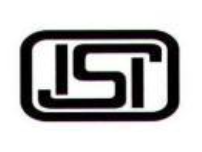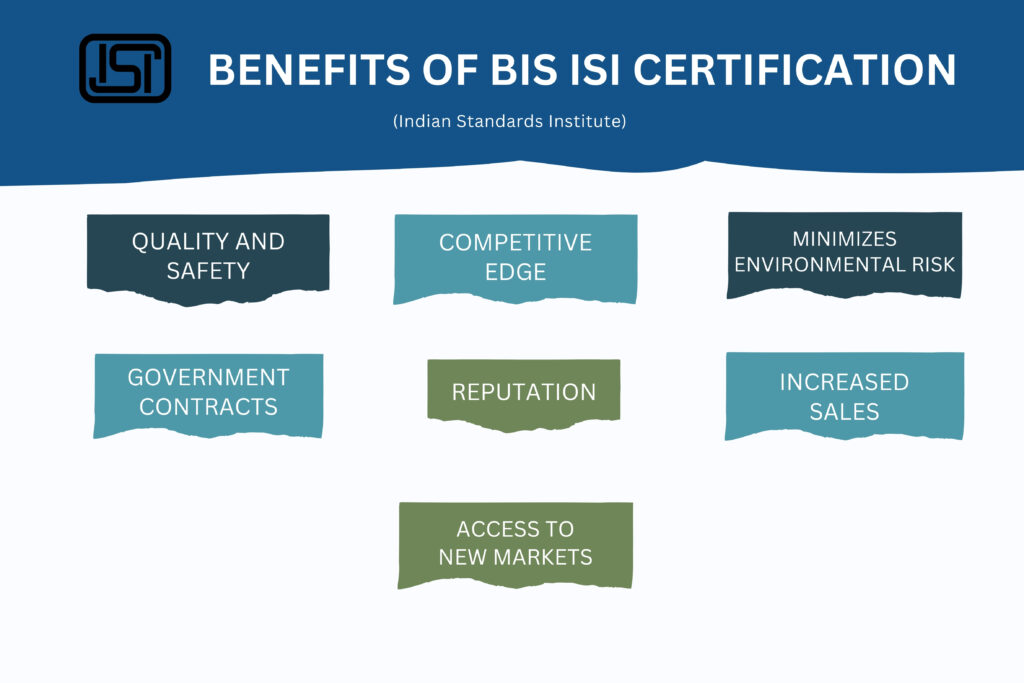Introduction to BIS/ISI Certification

BIS indeed plays a crucial role in standardization, quality certification, and ensuring the safety and reliability of goods. Here are some key points based on your statement:
Establishment and Purpose: BIS was established under the BIS Act of 2016 with the objective of harmoniously developing standardization, marking, and quality certification activities in India.
Functions: BIS provides traceability and tangibility benefits to the national economy through:
- Ensuring the production of safe and reliable quality goods.
- Minimizing health hazards to consumers by setting and enforcing standards.
- Promoting exports by enhancing product quality and reliability, thus boosting international competitiveness.
- Encouraging import substitution by ensuring that domestic products meet international standards.
- Controlling the proliferation of varieties through standardization, which streamlines production and consumption processes.
Impact on Economy: By maintaining standards and certification processes, BIS contributes significantly to the economy by fostering consumer confidence, supporting industries in meeting global benchmarks, and reducing trade barriers due to non-compliance issues.
Overall, BIS plays a critical role not only in ensuring the quality and safety of products but also in supporting economic growth and competitiveness both domestically and internationally.
What is BIS ISI Certification?

BIS ISI certification, often referred to simply as ISI mark, is a certification mark issued by the Bureau of Indian Standards (BIS) under the provisions of the Bureau of Indian Standards Act, 1986. ISI stands for Indian Standard Institute, which was the original name of BIS.
Here are the key aspects of BIS ISI certification:
Purpose: The ISI mark certifies that a product conforms to the Indian Standard (IS) specified by BIS. It ensures that the product meets the required safety, quality, and performance standards as set by BIS.
Categories: ISI certification is applicable to a wide range of products across various sectors including electronics, electrical appliances, automotive components, food products, textiles, cement, and more. The list of products requiring ISI certification is determined by BIS and periodically updated.
Certification Process: Manufacturers need to apply to BIS for ISI certification for their products. This involves testing the products in BIS recognized laboratories to verify compliance with the relevant Indian Standard. The testing includes checks on parameters like safety, quality, durability, performance, and environmental impact where applicable.
Marking: Upon successful testing and compliance, BIS grants ISI certification to the manufacturer. The certified products can then display the ISI mark on them. The ISI mark is typically a logo with the letters ‘ISI’ enclosed within a rectangle.
Consumer Assurance: The presence of the ISI mark on a product indicates to consumers that the product meets stringent quality and safety standards as mandated by BIS. It helps consumers make informed choices and ensures they receive products that are reliable and safe.
Legal Compliance: In certain cases, ISI certification may be mandatory for products under the Compulsory Registration Scheme (CRS) administered by BIS. This is particularly true for products covered under specific Compulsory Registration Orders issued by government ministries, as discussed earlier.
Overall, BIS ISI certification plays a crucial role in ensuring that products sold in the Indian market meet defined quality standards, thereby promoting consumer safety and confidence.
Who can Apply BIS ISI certification?
Manufacturers, both within India and outside India, can apply for BIS ISI certification for their products. Here are the key details regarding who can apply:
Manufacturers: Any manufacturer who produces products covered under the BIS standards can apply for ISI certification. This includes manufacturers located within India as well as those located outside India who intend to market their products in India.
Indian and Foreign Manufacturers: The certification process is open to manufacturers irrespective of their geographical location. Whether the manufacturer is based in India or operates internationally, they can apply for ISI certification if their products fall under the scope of BIS standards.
Product Scope: BIS ISI certification applies to a wide range of products across different sectors such as electronics, electrical appliances, automotive components, food products, building materials, textiles, and more. The specific products requiring ISI certification are determined by BIS and are listed in the relevant Indian Standards (IS).
Certification Requirements: Manufacturers need to adhere to the certification requirements set by BIS, which typically include:
- Ensuring the product complies with the applicable Indian Standard (IS).
- Submitting samples of the product for testing at BIS recognized laboratories to verify compliance.
- Providing necessary documentation and information related to the manufacturing process and quality control measures.
Testing and Compliance: Products undergo rigorous testing as per the specified Indian Standard to ensure they meet quality, safety, and performance criteria. Only products that pass these tests are eligible for ISI certification.
Benefits: ISI certification enables manufacturers to demonstrate their commitment to quality and compliance with Indian standards. It also helps in building consumer trust and market acceptance for their products in India.
In summary, BIS ISI certification is accessible to all manufacturers who are willing to comply with the relevant Indian Standards and undergo the certification process to ensure their products meet the required quality and safety benchmarks.
What is Govt Fees for BIS ISI certification?
The Government fees for BIS ISI certification can vary depending on the type of product being certified and the specific requirements involved. The Bureau of Indian Standards (BIS) is responsible for setting standards and certifying products under the ISI mark in India. The fees typically cover various aspects such as testing, inspection, audit, and certification.
Application Fee: There is usually an application fee that needs to be paid when applying for BIS certification. This fee can vary based on the type of product and its category.
Testing and Inspection Charges: Products undergoing BIS ISI certification need to undergo testing and inspection by BIS-approved laboratories. The charges for these tests and inspections are separate from the application fee.
Annual Renewal Fees: Once certified, there are annual renewal fees to keep the certification valid. These fees also depend on the type and category of the product.
The validity and renewal process for the Standard Mark (ISI) license are outlined as follows:
Initial Grant: The first grant of the license is valid for a minimum of one year.
Extension: This initial grant can be extended for up to two years. If you want to expand the range of products covered by the existing license during this period, you can apply for an extension by submitting the required fee and documents.
Renewal: After the initial grant and any extensions, the license can be renewed for up to five years. To renew the license, you need to submit renewal fees, marking fees, and specific documents as required.

